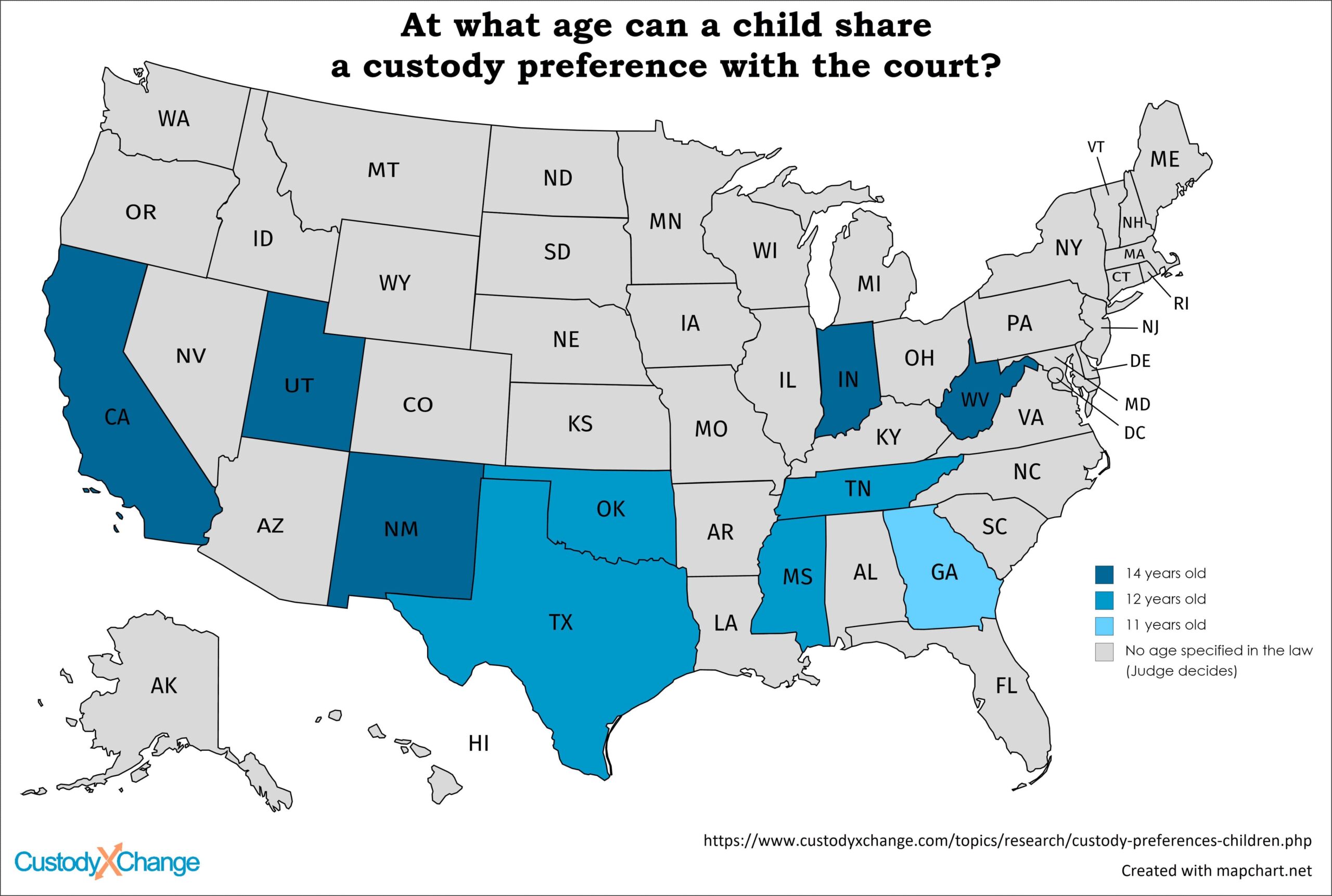At What Age Can A Child Decide Which Parent To Live With: Explained

Around the age of 12-14, a child’s preference for living arrangements may hold weight in court proceedings. This crucial decision often depends on the child’s maturity level and ability to articulate their preferences. However, ultimately, the court will consider the child’s best interests above all else. Understanding at what age can a child decide which parent to live with is essential for parents navigating custody battles. Let’s delve deeper into this complex but vital aspect of family law.
At What Age Can a Child Decide Which Parent to Live With: A Guide for Kids
Hey there, kids! Have you ever wondered about the rules when it comes to deciding which parent you can live with if your parents are separated or divorced? It’s important to know that even though you may have feelings about where you want to live, there are laws in place to protect your best interests. Let’s explore together at what age a child can have a say in such decisions.
Understanding Custody and Visitation
Before we dive into the details of when you might have a say in where you live, let’s talk a bit about custody and visitation. When parents separate or divorce, they have to figure out a plan for taking care of their children. This plan usually includes decisions about where the children will live and how they will spend time with each parent. This is called custody and visitation.
There are different types of custody arrangements, such as joint custody where parents share responsibilities, or sole custody where one parent has more decision-making power. Visitation refers to the schedule of when children spend time with each parent if they don’t live together.
Legal Age for Making Decisions
Now, let’s get to the big question – at what age can you have a say in where you live? In most places, the legal age where children can have a say in custody decisions is typically around 12 to 14 years old. This doesn’t mean that you automatically get to choose, but your opinion may carry more weight as you get older.
You see, the court’s main concern is always the best interests of the child. This means that they will listen to what you have to say, but ultimately, they will decide based on what they think will be best for you in the long run. They consider things like your relationship with each parent, your school and community, and your overall well-being.
Factors that Influence the Decision
When thinking about where you want to live, there are a few things to keep in mind. Here are some factors that can influence the decision:
1. Your Age and Maturity
Your age and how mature you are can play a role in how much your opinion matters. Younger kids may not have as much say as older kids who can express their thoughts and feelings more clearly.
2. Your Relationship with Each Parent
The court will look at your relationship with each parent. If you have a stronger bond with one parent or if one parent has been the primary caregiver, that might be a big factor in the decision.
3. Your Wishes
It’s important for you to talk about your wishes with a trusted adult, like a parent or a counselor. Your opinion is valuable, and the court will consider what you have to say when making a decision.
4. Stability and Support
The court will also think about which parent can provide you with a stable home environment and the support you need. This includes things like having a safe place to live, access to education and healthcare, and emotional support.
What to Do if You Want to Express Your Preferences
If you want to share your thoughts about where you want to live, there are a few things you can do:
1. Talk to Your Parents: Let your parents know how you feel and why you have a preference for living with one of them.
2. Speak with a Guardian ad Litem: In some cases, a guardian ad litem might be appointed by the court to represent your best interests. You can talk to them about your wishes.
3. Communicate with a Judge: If you’re asked to speak to a judge or another court official, be honest about your feelings and experiences. They are there to listen and help make the best decision for you.
Remember, kids, it’s okay to have feelings about where you want to live if your parents are separated or divorced. Your voice matters, and it’s important for adults involved in the decision-making process to listen to you. While the final decision may not always be exactly what you want, the goal is to make sure you are safe, loved, and cared for no matter where you live.
Keep in mind that the rules about children’s preferences in custody decisions can vary depending on where you live, so it’s always a good idea to talk to a grown-up you trust if you have questions or concerns. Your well-being is the most important thing, and there are people who are there to help you through this process.
Stay strong, kids, and remember that you are not alone in this journey. Your feelings are valid, and there are caring adults who are looking out for you every step of the way.
At what age can a child decide which parent to live with?
Frequently Asked Questions
What factors are considered when a child wants to decide which parent to live with?
When a child expresses a preference on which parent to live with, the court will consider various factors such as the child’s age, maturity level, reasons for the preference, and the ability of each parent to meet the child’s physical and emotional needs.
Can a child’s preference override a court’s decision on custody?
A child’s preference is one of many factors considered by the court when determining custody arrangements. While a child’s preference may be given some weight, it does not automatically override the court’s decision, which is based on the child’s best interests.
At what age can a child typically have a say in which parent to live with?
There is no specific age that determines when a child can decide which parent to live with. Generally, as children grow older and demonstrate maturity, their preferences may carry more weight in custody decisions. However, the ultimate decision still lies with the court.
Final Thoughts
In conclusion, the age at which a child can decide which parent to live with varies by location, with some jurisdictions considering the child’s preferences around the age of 12 or older. However, the final decision still lies with the court, prioritizing the child’s best interests. It’s crucial to consider the child’s maturity level and ability to make informed choices when determining at what age can a child decide which parent to live with. Parents and legal professionals should work together to ensure a smooth transition based on the child’s well-being.







